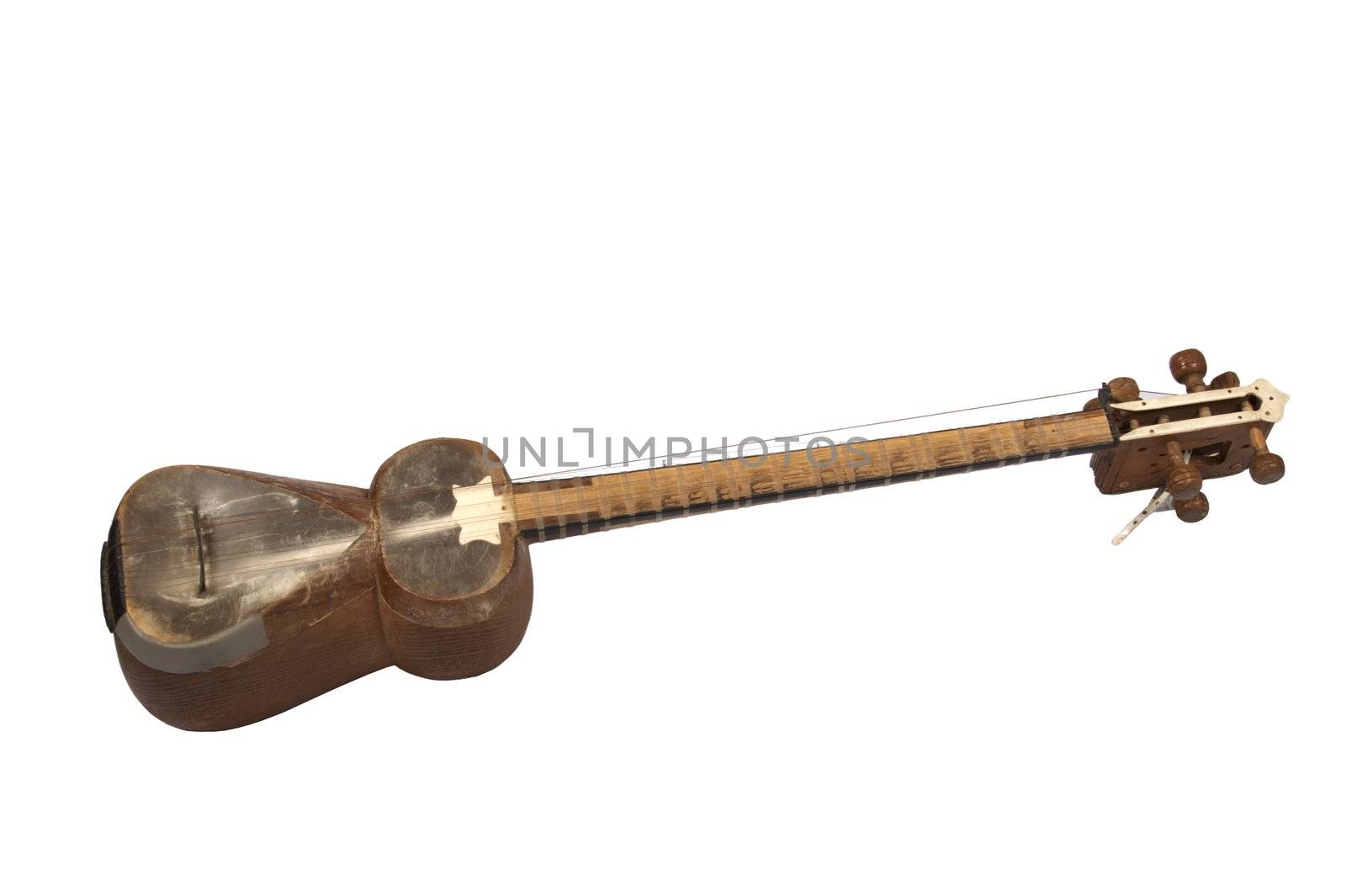
Dutar Stock Image
by Robin
Description
The dutar ( Uzbek: dutor) (also dotar or doutar) is a traditional long-necked two-stringed lute found in Central Asia. Its name comes from the Persian word for "two strings", dotar (do "two", tar "string"), although the Herati dutar of Afghanistan has 14 strings. When played, the strings are usually plucked by the Uyghurs of Western China and strummed and plucked by the Uzbeks, Tajiks, Turkmen, and Afghan people. In the instrument's 15th century beginnings in the hands of shepherds, its strings were made from gut. With the coming of the Silk Road, the strings were made from twisted silk. Modern instruments also have silk or nylon strings.
Legal
-
Royalty Free License
The license type determines how you can use this image.

Std. Ext. Print / Editorial Graphic Design Web Design Social Media Edit & Modify Multi-user Resale Items 1 Unlimited Runs - Please see licensing information by clicking here
Keywords
- dutar
- dutor
- doutar
- two string
- folk music
- folk instruments
- music instriments
- asia
- uzbek music